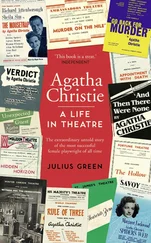Alice Green - Town Life in the Fifteenth Century, Volume 1
Здесь есть возможность читать онлайн «Alice Green - Town Life in the Fifteenth Century, Volume 1» — ознакомительный отрывок электронной книги совершенно бесплатно, а после прочтения отрывка купить полную версию. В некоторых случаях можно слушать аудио, скачать через торрент в формате fb2 и присутствует краткое содержание. Жанр: literature_19, foreign_antique, foreign_prose, Историческая проза, на английском языке. Описание произведения, (предисловие) а так же отзывы посетителей доступны на портале библиотеки ЛибКат.
- Название:Town Life in the Fifteenth Century, Volume 1
- Автор:
- Жанр:
- Год:неизвестен
- ISBN:нет данных
- Рейтинг книги:3 / 5. Голосов: 1
-
Избранное:Добавить в избранное
- Отзывы:
-
Ваша оценка:
- 60
- 1
- 2
- 3
- 4
- 5
Town Life in the Fifteenth Century, Volume 1: краткое содержание, описание и аннотация
Предлагаем к чтению аннотацию, описание, краткое содержание или предисловие (зависит от того, что написал сам автор книги «Town Life in the Fifteenth Century, Volume 1»). Если вы не нашли необходимую информацию о книге — напишите в комментариях, мы постараемся отыскать её.
Town Life in the Fifteenth Century, Volume 1 — читать онлайн ознакомительный отрывок
Ниже представлен текст книги, разбитый по страницам. Система сохранения места последней прочитанной страницы, позволяет с удобством читать онлайн бесплатно книгу «Town Life in the Fifteenth Century, Volume 1», без необходимости каждый раз заново искать на чём Вы остановились. Поставьте закладку, и сможете в любой момент перейти на страницу, на которой закончили чтение.
Интервал:
Закладка:
35
Ibid. passus vi. 181. M. Jusserand (Epopée Mystique du Moyen Age, 101-118), justly points out what a typical representative of common opinion Langland was. Compare the popular manifesto of 1450. (Hist. MSS. Com. viii. 267.) “They say the King should live upon his commons, and that their bodies and goods are his; the contrary is true, for then needed him never to set Parliament and to ask good of them.”
36
The burden of taxation was gradually being transferred from one class to another as subsidies on moveables, and customs on import and export were found more productive and more easily managed. Stubbs, ii. 570.
37
Reductions of rent are too numerous to give; they occurred everywhere, and were sometimes apparently bought at a considerable price. (See Round’s Geoffrey de Mandeville, 366.) Loans from the towns seem to have been voluntary. In 1435 the Sandwich commonalty refused to lend money to the King; and further excused themselves from sending him soldiers for the defence of Calais, “having all the men they can spare already employed in the service of the Duke of York.” (Boys, 672.) A grant to the King was again refused in 1486. (Ibid. 678.) The Norwich citizens got into trouble for instituting a suit to have their loan returned (Blomefield, iii. 147, 152). In 1424 Lynn lent 400 marks, and in 1428 the council agreed that burgesses of parliament should receive from executors of the late king a hundred pounds for a pledged circlet of gold because they could not get more (Hist. MSS. Com. xi. part 3, 161). In 1491 the king was at Bristol, where he had a benevolence of £1,800 (Ricart, 47-48). At the coming of Richard the Third in 1484, York, to gain a reduction of the fee-ferm, agreed to give him 100 marks in a cup of gold, and to the queen £100 in a dish. A list is given of the citizens who subscribed – the mayor giving £20, the recorder £100, and so on. The whole sum subscribed was £437 (Davis’ York, 167-9, 174). It would be quite impossible to mention all the loans, but the instance of Canterbury is curious as the first foreshadowing of the national debt. In 1438 £40 was lent to the king, and in 1443 £50; in these cases private individuals advanced the money in various amounts according to their taste for speculation, and probably got certificates promising interest and redemption at par (Hist. MSS. Com. ix. part 1, 139).
38
Luchaire, 288-9.
39
Luchaire, 64, 137.
40
M. Jusserand in his Epopée Mystique du Moyen Age has well pointed out that the war with France was royal rather than national. Pp. 7-9, 117.
41
Stubbs, Lectures on Mediæval History, p. 342; Friedman, Anne Boleyn, i. pp. 1-4; Gneist, La Constitution Communale, trans. by Hippert, i. p. 334, &c. “England at the accession of Henry the Seventh was far behind the England of the thirteenth century.” (Denton, Lectures on the Fifteenth Century, 120, 118.) “This low and material view of domestic life had led to an equally low and material view of political life, and the cruelty which stained the Wars of the Roses was but the outcome of a state of society in which no man cared much for anything except his own greatness and enjoyment. The ideal which shaped itself in the minds of the men of the middle class was a king acting as a kind of chief constable, who, by keeping great men in order, would allow their inferiors to make money in peace.” (Gardiner’s Student’s History, 330-1.) “The despondency of the English people, when their dream of conquest in France was dissipated, was attended with a complete decay of thought, with civil war, and with a standing still or perhaps a decline of population, and to a less degree of wealth.” (National Life and Character, by Charles Pearson, p. 130-1.) “There are few more pitiful episodes in history. Thirty-five years of a war that was as unjust as it was unfortunate had both soured and demoralised the nation.” “England had entirely ceased to count as a naval power.” As for the burgesses, “if not actively mischievous they were sordidly inert.” (Oman’s Warwick, 4-11, 67, 133.)
42
In Ricart’s Calendar in Bristol he enters duly the fact that a battle had been fought and that one side or other was victorious without further comment. He misplaces the date of the murder of Suffolk three years, though he might well have remembered it; and he writes as a sort of after-thought in the margin of his record, “and this year the two sons of King Edward were put to silence in the Tower of London.” (Ricart, 40-46.) In 1460 Norwich had its captain and 120 soldiers with King Henry in the north, and all the rest of its available forces had to hurry off to Edward at his accession. (Blomefield iii. 162-163.) The city raised £160 for the coming of Richard the Third to the city, and £140 for the coming of Henry the Seventh. (Ibid. 173-174.) For Nottingham, see vol. ii. There is no mention of Bosworth in Canterbury, and Henry the Seventh was received with the same pomp as former kings. (Hist. MSS. Com. ix. 145.) For Bosworth, where men stood afar off waiting to join the victorious side, see Fabyan, 672-673. The policy of the burghers was the same in this respect as that of the great Churchmen, who were entirely passive in the real crises of the civil war, and so ready to serve every king, that not one of them suffered loss from fidelity to any side. (Rogers’ Agricul. and Prices, iv. 9, 10.) The people in general were equally indifferent. “I have read thousands of documents penned during the heat of the strife, and have found only one allusion to the character of the times in the earlier, and one about the later war of 1470-1.” (Ibid., 19.) An interesting parallel to the indifference of the trading communities of the fifteenth century during the Wars of the Roses may be seen in the action of the Merchants’ Company in the civil wars of the seventeenth century. (Lambert’s Gild Life, 177-178.)
43
See vol. ii. ch. i.
44
In Lydd corn was given to the poor at Christmas and Easter, and gifts to lepers; payments made from 1480-1485 for Goderynge’s daughter, “poor maid,” “hosen, shoes, her keep, kertyl-cloth and for making thereof;” also in 1490, “paid to the poor man keeping the poor child 12 pence.” After a long list of expenses for a thief and making stocks for him and a halter, “paid for one pair of shoes to his daughter 3 d. ,” and “given to the quest of women 4 d. ”; summoned perhaps in reference to the daughter. (Hist. MSS. Com. v. 527, 526.) In Rye sums were paid to the poor on opening the box of maltotes. (Ibid. 494.) For Southampton, Hist. MSS. Com. xi. 3, 112; the steward’s book in 1441 contains a list of alms, £4 2 s. 1 d. , given away every week to poor men and women. (Davies, 294.) According to the usual calculation at this time in almshouses of a penny a day for living, this sum would mean that the corporation paid weekly for the mere subsistence of 140 persons. For Bristol, Ricart’s Kalendar, 72-80, 82, &c. For Chester, Hist. MSS. Com. viii. 371. For Romney, Hist. MSS. Com. v. 535-6. The Mayor of Sandwich had to manage the hospitals of S. Bartholomew and S. John, to appoint their officers, to audit their accounts, and administer their estates made up of innumerable parcels of land and houses left by pious people. (Boys, 17-21, 526.) The municipal council of Exeter appointed every year a Warden of the Poor to look after their many charitable foundations. It had charge of Magdalen Hospital, of the Ten Cells Hospital for Poor, founded in 1406 by Simon Grendon, Mayor; the Combrew Almshouse, founded by Sir William Bonville, 1408; and an almshouse founded by John Palmer. (Freeman’s Exeter, 175-6.) There was a municipal almshouse in Hereford supported by way of payment to the corporation from ecclesiastical tenants for a share in the city’s privileges. (Arch. Ass. Journ. xxvii. 481.) In the fifteenth century bequests by burgesses for these purposes were very frequent and were usually left to the management of the corporation. In all large towns the mayor and aldermen presided over the court of orphans. (Davies’s Southampton, 239.) The indications of poor relief by the towns must modify Mr. Ashley’s conclusion (Economic History, I. part ii. 338) that “no attempt was made by the State as a whole, or by any secular public authority , to relieve distress. The work was left entirely to the Church, and to the action of religious motives upon the minds of individuals.” It seems difficult to follow in this connexion his distinction drawn between the craft associations which had or had not grown out of religious fraternities (p. 325).
Читать дальшеИнтервал:
Закладка:
Похожие книги на «Town Life in the Fifteenth Century, Volume 1»
Представляем Вашему вниманию похожие книги на «Town Life in the Fifteenth Century, Volume 1» списком для выбора. Мы отобрали схожую по названию и смыслу литературу в надежде предоставить читателям больше вариантов отыскать новые, интересные, ещё непрочитанные произведения.
Обсуждение, отзывы о книге «Town Life in the Fifteenth Century, Volume 1» и просто собственные мнения читателей. Оставьте ваши комментарии, напишите, что Вы думаете о произведении, его смысле или главных героях. Укажите что конкретно понравилось, а что нет, и почему Вы так считаете.












